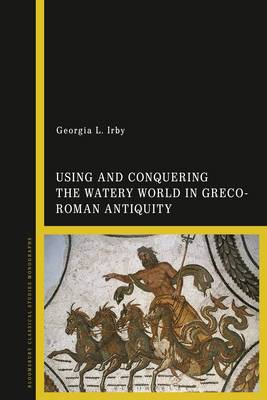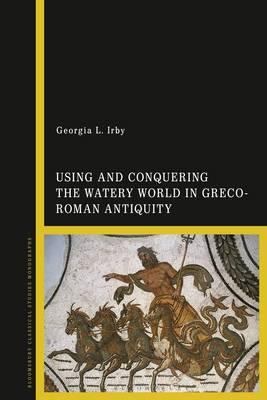
- Afhalen na 1 uur in een winkel met voorraad
- Gratis thuislevering in België vanaf € 30
- Ruim aanbod met 7 miljoen producten
- Afhalen na 1 uur in een winkel met voorraad
- Gratis thuislevering in België vanaf € 30
- Ruim aanbod met 7 miljoen producten
Omschrijving
This volume considers how Greco-Roman authorities manipulated water on the practical, technological, and political levels. Water was controlled and harnessed with legal oversight and civic infrastructure (e.g., aqueducts). Waterways were 'improved' and made accessible by harbors, canals, and lighthouses. The Mediterranean Sea and Outer Ocean (and numerous rivers) were mastered by navigation for warfare, exploration, settlement, maritime trade, and the exploitation of marine resources (such as fishing). These waterways were also a robust source of propaganda on coins, public monuments, and poetic encomia as governments vied to establish, maintain, or spread their identities and predominance.
This first complete study of the ancient scientific and public engagement with water makes a major contribution to classics, geography, hydrology and the history of science alike. In the ancient Mediterranean Basin, water was a powerful tool of human endeavor, employed for industry, trade, hunting and fishing, and as an element in luxurious aesthetic installations (public and private fountains). The relationship was complex and pervasive, touching on every aspect of human life, from mundane acts of collecting water for the household, to private and public issues of comfort and health (latrines, sewers, baths), to the identity of the state writ large.Specificaties
Betrokkenen
- Auteur(s):
- Uitgeverij:
Inhoud
- Aantal bladzijden:
- 312
- Taal:
- Engels
Eigenschappen
- Productcode (EAN):
- 9781350155848
- Verschijningsdatum:
- 12/08/2021
- Uitvoering:
- Hardcover
- Formaat:
- Genaaid
- Afmetingen:
- 156 mm x 234 mm
- Gewicht:
- 616 g

Alleen bij Standaard Boekhandel
Beoordelingen
We publiceren alleen reviews die voldoen aan de voorwaarden voor reviews. Bekijk onze voorwaarden voor reviews.







